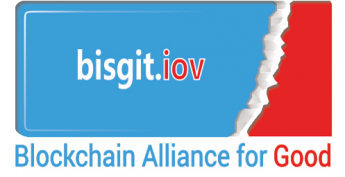The call for a more sustainable economy is not new. It goes back as far as the call for global responses to climate change and the rapid growth of populations associated with the rising scarcity of natural resources. We are living however a momentum of unprecedented favourable alignment of technological, political and social factors that are enabling an effective transition to a more sustainable economy. The term ‘circular economy’ has emerged to represent this new economic landscape which is paving the way for business model innovations that maximise environmental and societal benefits with no detriment to economic gains. In general, the circular economy advocates, inter alia, the creation of production/consumption systems that:
- Emphasise the delivery of functionality and experience (value in use), rather than product ownership;
- Build upon collaborative or shared consumption approaches;
- Create closed-loop or cascading (open-loop) value chains where recycling, remanufacturing, repair and reuse processes substitute or minimise disposal processes.
An increasing number of businesses are already implementing one or more of the initiatives above, which are fundamentally based on the prolonged use of products. This is the central point I would like to draw your attention to.
The role that end consumers can play to prolong the life span of products is not just a consumption issue, it is also a supply issue in the sense that consumers can potentially supply other consumers or businesses with products that can be further used, repaired, remanufactured or recycled.
There are actually digital platforms where consumers can make their assets and even their skills available to the market (e.g. ebay, Airbnb and taskrabbit). But these business models are third-party centralised marketplace systems that control the flow of information and currency between the parts involved.
Another limitation for consumers is that a number of current circular economy business models are still primarily focused on the firm, relegating the end consumer to roles such as use or share and the subsequent separation of products or waste for reuse or refuse collection. This wastes consumers’ capability and effort which an effective circular economy should co-opt.
Co-opting the consumer’s capabilities and skills has the potential to transform regenerative product-service systems and accelerate the shift towards the circular economy. The main question is: How can consumers be empowered to engage and participate more actively in product reuse and recovery processes? Blockchain seems to be the key enabler to significantly empower consumers for the circular economy.
The advent of the blockchain technology offers unprecedented opportunities for circular economy business models geared by peer to peer (P2P) networks. Digital ‘blockchain-enabled’ platforms allow P2P transactions to takes place on the cloud without third-party intermediaries. That is, consumers can engage in transactions and securely pay each other directly, without intermediaries, through a decentralised and globally distributed blockchain network. By enabling consumers to circulate and recapture value from their underused assets, blockchain platforms have the power to significantly catalyse the shift from the linear to the circular economy.
The opportunities that can be created with the support of the blockchain technology are limitless, including the value one can attach to the currency, or coin, used in blockchain marketplaces. Currency value is no longer limited to hard tangible financial value. Intangible social and environmental values can also be attached to an ‘extra-financial’ coin that connects socio-environmental value to financial value. The main challenge is to define the metrics to represent intangible values. Pioneering initiatives to tackle this issue are already in place. The CCEG Blockchain UN Lab has been developing projects aimed at enabling transactions of intangible and non-financial values using a unique combination of blockchain technology. You are welcome to take this challenge with us, helping to shape the new marketplaces for the circular economy.
As an example, follow this interactive prezi http://ow.ly/A34u303S4wa or watch video of Circular Economy in a city context
